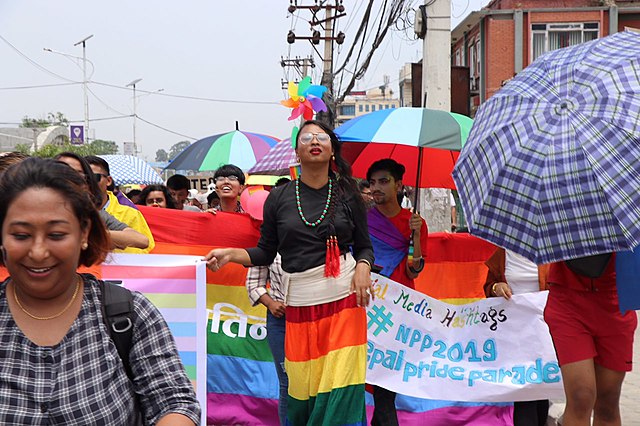LGBTI Rights | Nepal’s Supreme Court upholds Yogyakarta Principles advancing SOGIESC issues
Nepal's recognition of international legal frameworks are contributing to the development of national legal norms acknowledging issues of sexual orientation and gender identity.
On May 2, 2023, the Supreme Court of Nepal, in the case of Adheep Pokhrel v. Ministry of Home Affairs, reinforced the rights to life, equality, dignity, integrity, and privacy of all spouses applying those rights outlined in the Yogyakarta Principles (YPs) and Yogyakarta Principles plus 10 (YPs+10). The ruling drew on the Court’s previous 2017 decision (Panta v. Ministry of Home Affairs) and held that the denial of a non-immigrant visa to a foreign same-sex spouse was inconsistent with the Constitution and national law. The decision recognises the growing adoption of the term ‘sexual orientation and gender identity and expression and sex characteristics’ (SOGIESC).
The YPs are 29 guiding principles that apply international human rights law to issues related to sexual orientation and gender identity (SOGI), which were developed in 2006 by a group of human rights experts in Yogyakarta, Indonesia. The YPs+10 were adopted 10 years later, in recognition of the significant intersection of developments in international human rights law with the emerging understanding of violations suffered by persons on grounds of SOGI, and the recognition of the distinct and intersectional grounds of gender expression and sex characteristics.
The application of the YPs and YPs+10 at the national level relies on national implementation, sensitisation, support from decision-makers, and continued innovation by civil society. Nepal’s judicial system has been a key player in applying the YPs and YPs+10. LGBTI defenders have contributed to this by strategically and repeatedly intervening litigiously, relying on the YPs in their legal arguments, supporting and building on the 2007 decision (Pant v. Nepal). Additionally, youth LGBTI defenders have adopted innovative approaches including the use of YPs and YPs+10 in advocacy strategies, such as in Nepal’s first pride parade and developing resources for SOGIESC-related terminology in multiple national languages. While, policymakers have relied on this judgement to create space for sexual and gender minorities in the national budget. We note however that the Supreme Court’s directive and the associated Committee’s subsequent recommendation to recognize same-sex relationships has yet to be acted upon after 16 years.
Nepal has demonstrated encouraging developments seeking to protect individuals from violence and discrimination on the basis of their SOGIESC, with human rights defenders making significant contributions. ISHR welcomes Nepal’s ongoing efforts , and urges the Government to continue to listen to affected communities and LGBTI defenders in the country.
Source: https://ishr.ch/latest-updates/lgbti-rights-nepals-supreme-court-upholds-yogyakarta-principles-advancing-sogiesc-issues/


Comments are closed.